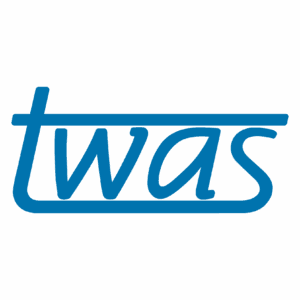The 2023 Advancing Development Goals International Contest for Graduate Students aims to present innovative and pragmatic solutions to address the challenges of poverty reduction.
Eager to stimulate reflection and innovation on development from diverse disciplinary and contextual perspectives and with the generous support of Ambassador Jenö Staehelin, the Graduate Institute has launched in 2014 the Advancing Development Goals Contest, an international competition for Master students.
The idea is to gather contributions that are both theoretically grounded and offer pragmatic solutions to a relevant international development problem stemming from an interdisciplinary collaboration between three to five enrolled master students from anywhere in the world.
THE CHALLENGES OF LONELINESS
A substantial proportion of people worldwide, from young adults to seniors, experience problematic levels of loneliness, including social, emotional and physical loneliness. Loneliness impacts people`s physical and mental wellbeing, as well as their ability to fully participate in political, social and economic life. The experience of loneliness is prevalent in all parts of societies, among people from all socio-economic backgrounds, ages, and genders. Socially excluded and marginalised groups experience higher levels of loneliness, further exacerbating existing societal inequalities. For example, shocks, forced displacement, war, migration, and poverty all have profound links with loneliness and the negative effects of loneliness. As the COVID-19 pandemic has shown, shocks and crises can increase the number of people experiencing some form of loneliness, especially among vulnerable groups, but the issue is prevalent in all parts of the world and societies.
Furthermore, loneliness is linked to many of the Sustainable Development Goals (SDGs), including SDG 3 (Good Health and Well-Being), SDG 1 (No Poverty), SDG 8 (Decent Work and Economic Growth), SDG 5 (Gender Equality), SDG 10 (Reduced Inequalities), SDG 11 (Sustainable Cities and Communities), and SDG 16 (Peace, Justice and Strong Institutions). Therefore, addressing loneliness is crucial in order to achieve the SDGs.
Requirements
The idea is to gather contributions that are both theoretically grounded and offer pragmatic solutions to a relevant international development problem stemming from an interdisciplinary collaboration between three to five enrolled master students from anywhere in the world.
Five prizes will be distributed; one in each of the following categories (based on the UN Statistics list):
- Universities located in Africa
- Universities located in Asia
- Universities located in Europe
- Universities located in North America and Oceania
- Universities located in South America
Prizes:
- The ADG contest distributes 25,000 CHF in monetary prizes.
- The winning project will be awarded CHF 10,000; the two teams in second place will receive CHF 5,000 each and the two teams in third place, CHF 2,500 each.
Selection Criteria
- Submissions are evaluated by an interdisciplinary academic steering committee that will select three submissions per category to be published on the competition’s website and then reviewed by an independent jury of experts with academic, governmental and private sector backgrounds.
- Five finalist teams, one team per continent, will be invited (complying with COVID-19 restrictions; travel and accommodation expenses covered) to an oral presentation in Geneva, where they will defend their ideas and answer questions from the jury and the public. The finalists will also be invited to an awards ceremony where the contest results will be announced, preceded by a high-level keynote speech.
Registration of teams
- An online registration form will be made available from 1st February 2023 at www.graduateinstitute.ch/TheGenevaChallenge
- Registration ends on 23rd April 2023 before midnight – Central Europe Time (CET)
- Each group must choose a team leader who will be the main (but not sole) focus point for communication with the organisation of the contest.
- The registration form must be correctly filled in with the information required of all the participants.
- Before the registration deadline, the proof of enrolment for all the team members must be sent online or to: geneva.challenge@graduateinstitute.ch
Submission requirements
- – Submissions must be sent by email to: geneva.challenge@graduateinstitute.ch before midnight 12 am (Central Europe Time (CET)), on 14th July 2023.
– Submissions must include both an abstract and a project. - – The abstract should be one page long and should include short biographies of each team member, a brief description of the problem addressed by the project and the solution, specifying in which way the proposed solution will make a difference.
- – The project, which will have a maximum length of 8000 (eight thousand) words excluding all notes, graphics and references and must be written in English or French.
- – The submissions will combine theoretical analyses, creativity, critical thinking on technical assistance, capacity building and on the agency of development.
- – Entries must be original. All long listed works will go through a check for plagiarism before being forwarded to the Jury members as semi-finalists of the 2023 Geneva Challenge.
For More Information:
Visit the Official Webpage
Application Deadline: 23rd April 2023 before midnight – Central Europe Time (CET)

